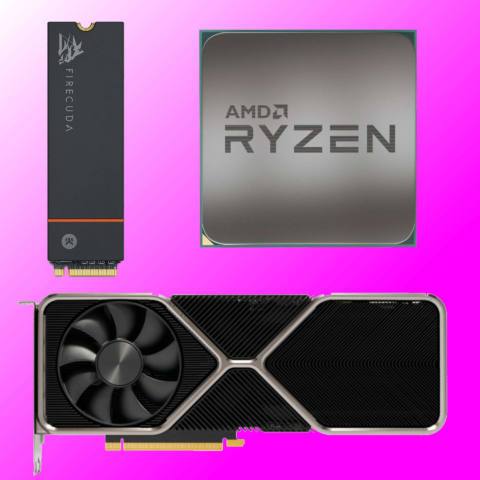This is more in line with existing rumors and expectations than qualifying as earth-shattering news. But an apparent leak on graphics board maker Zotac’s website seems to confirm that Nvidia will soon be releasing an RTX 5090 GPU with a full 32GB of VRAM.
The leak (via Videocardz) also confirms the branding of the full mid-to-upper-tier line up, including the aforementioned RTX 5090, the RTX 5090 D (presumably a hobbled 5090 to meet US export restrictions for China), the RTX 5080, RTX 5070 Ti and RTX 5070.
If that’s all as expected, the now deleted Zotac listings are the closest we’ve yet come to official confirmation for any of these GPUs. If you are wondering, the 5090 is expected to be an absolute goliath not just in terms of the 32GB of VRAM and the 512-bit bus that goes with that, but fully 21,760 CUDA cores.
The monster that is the RTX 4090 has 16,384 CUDA cores. So an RTX 5090 with significantly more, plus presumably some architectural and silicon enhancements is going to be epic, though the price will presumably be epic, too.
Further down the range, we’re not expecting anything like that scale of progress, with the RTX 5080 said to be clocking in at 10,752 CUDA cores to the 4080’s 9,728 and RTX 4080 Super’s 10,240. The 5080 is also said to be sticking at 16GB of VRAM.
Meanwhile the 5070 Ti and 5070 are rumored to pack 8,960 and 6,400 CUDA cores respectively. That compares to 8,448 and 7,168 for the 4070 Ti Super and 4070 Super. Oh and the plain 4070 had 5,888 CUDA cores.
Those lower-tier GPUs likewise do not seem to be moving things on from a VRAM perspective versus the existing RTX 40 boards, either. Ultimately, if the 5080 has 16GB, then it’s tricky to have lower tier cards beating that allocation. So, the 5070 is slated as having 12GB and the 5070 Ti perhaps 16GB.
That implies the RTX 5060, which wasn’t mentioned on the Zotac site, may once again be 8GB. If true, that would be fairly depressing given how many games now use more than 8GB when running with all the options on and especially ray-tracing, even at fairly modest resolutions.
As we’ve come to expect of late, then, Nvidia looks set to drip feed relatively small amounts of extra performance down to mere mortals, more’s the pity. Still, momentum for the expected CES launch in January of the first of these new Blackwell-generation GPUs is certainly building, including some cheerleading for the great man himself.

Best CPU for gaming: Top chips from Intel and AMD.
Best gaming motherboard: The right boards.
Best graphics card: Your perfect pixel-pusher awaits.
Best SSD for gaming: Get into the game first.






